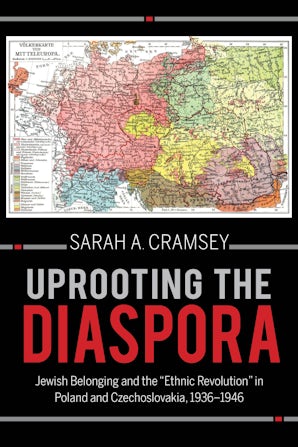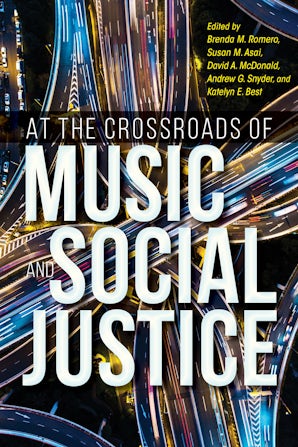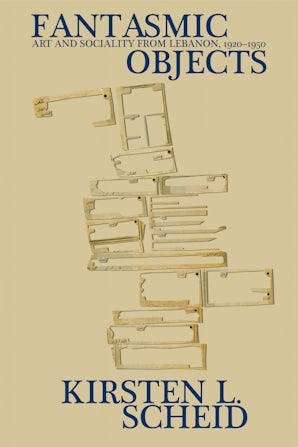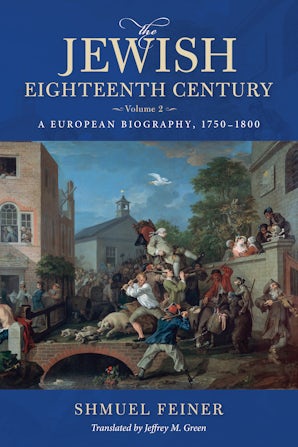Indiana University Press is proud that our books have received over 60 awards (and counting!) during the 2020-2021 calendar year. Many congratulations to our well-deserving authors!
Award-Winning Books

Runner-up: Ernst Fraenkel Prize
Uprooting the Diaspora
Jewish Belonging and the "Ethnic Revolution" in Poland and Czechoslovakia, 1936–1946
Sarah A. Cramsey
In Uprooting the Diaspora, Sarah Cramsey explores how the Jewish citizens rooted in interwar Poland and Czechoslovakia became the ideal citizenry for a post–World War II Jewish state in the Middle East. She asks, how did new interpretations of Jewish belonging emerge and gain support amongst Jewish and non-Jewish decision makers exiled from wartime east central Europe and the powerbrokers surrounding them?
Usually, the creation of the State of Israel is cast as a story that begins with Herzl and is brought to fulfillment by the Holocaust. To reframe this trajectory, Cramsey draws on a vast array of historical sources to examine what she calls a "transnational conversation" carried out by a small but influential coterie of Allied statesmen, diplomats in international organizations, and Jewish leaders who decided that the overall disentangling of populations in postwar east central Europe demanded the simultaneous intellectual and logistical embrace of a Jewish homeland in Palestine as a territorial nationalist project.
Uprooting the Diaspora slows down the chronology between 1936 and 1946 to show how individuals once invested in multi-ethnic visions of diasporic Jewishness within east central Europe came to define Jewishness primarily in ethnic terms. This revolution in thinking about Jewish belonging combined with a sweeping change in international norms related to population transfers and accelerated, deliberate postwar work on the ground in the region to further uproot Czechoslovak and Polish Jews from their prewar homes.

Commended: Bruno Nettl Prize
At the Crossroads of Music and Social Justice
Brenda M. Romero, Susan M. Asai, David A. McDonald, Andrew G. Snyder, Katelyn E. Best, Kyra D. Gaunt, Steven Loza, Charlotte W. Heth, Paul Austerlitz, Katie J. Graber, Darci Sprengel, Ho Chak Law, Alexandria Carrico, Erin E. Bauer, Rebekah E. Moore
Music is powerful and transformational, but can it spur actual social change?
A strong collection of essays, At the Crossroads of Music and Social Justice studies the meaning of music within a community to investigate the intersections of sound and race, ethnicity, religion, gender, sexual orientation, and differing abilities. Ethnographic work from a range of theoretical frameworks uncovers and analyzes the successes and limitations of music's efficacies in resolving conflicts, easing tensions, reconciling groups, promoting unity, and healing communities. This volume is rooted in the Crossroads Section for Difference and Representation of the Society for Ethnomusicology, whose mandate is to address issues of diversity, difference, and underrepresentation in the society and its members' professional spheres. Activist scholars who contribute to this volume illuminate possible pathways and directions to support musical diversity and representation.
At the Crossroads of Music and Social Justice is an excellent resource for readers interested in real-world examples of how folklore, ethnomusicology, and activism can, together, create a more just and inclusive world.

Commended: Fatema Merenissi Book Award
Fantasmic Objects
Art and Sociality from Lebanon, 1920-1950
Kirsten L. Scheid
In Lebanon, the study of modern art—rather than power or hierarchy—has compelled citizens to confront how they define themselves as a postcolonial nation.
In Fantasmic Objects, Kirsten L. Scheid offers a striking study of both modern art in Lebanon and modern Lebanon through art. By focusing on the careers of Moustapha Farrouk and Omar Onsi, forefathers of an iconic national repertoire, and their rebellious student Saloua Raouda Choucair, founder of an antirepresentational, participatory art, Scheid traces an emerging sense of what it means to be Lebanese through the evolution of new exhibition, pedagogical, and art-writing practices. She reveals that art and artists helped found the nation during French occupation, as the formal qualities and international exhibitions of nudes and landscapes in the 1930s crystallized notions of modern masculinity, patriotic femininity, non-sectarian religiosity, and citizenship.
Examining the efforts of painters, sculptors, and activists in Lebanon who fiercely upheld aesthetic development and battled for new forms of political being, Fantasmic Objects offers an insightful approach to the history and formation of modern Lebanon.

Runner-up: Jewish Book Award - History
The Jewish Eighteenth Century, Volume 2
A European Biography, 1750–1800
Shmuel Feiner, Jeffrey M. Green
The second volume of Shmuel Feiner's The Jewish Eighteenth Century covers the period from 1750 to 1800, a time of even greater upheavals, tensions, and challenges. The changes that began to emerge at the beginning of the eighteenth century matured in the second half.
Feiner explores how political considerations of the Jewish minority throughout Europe began to expand. From the "Jew Bill" of 1753 in Britain, to the surprising series of decrees issued by Joseph II of Austria that expanded tolerance in Austria, to the debate over emancipation in revolutionary France, the lives of the Jews of Europe became ever more intertwined with the political, social, economic, and cultural fabric of the continent.
The Jewish Eighteenth Century, Volume 2: A European Biography, 1750–1800 concludes Feiner's landmark study of the history of Jewish populations in the period. By combining an examination of the broad and profound processes that changed the familiar world from the ground up with personal experiences of those who lived through them, it allows for a unique explanation of these momentous events.

Winner: INDIES Book Award
Departure Stories
Betty Crocker Made Matzoh Balls (and other lies)
Elisa Bernick
"We weren't religious per se. The most frequent mention of God in our house was my mother yelling 'Goddammit!'"
Elisa Bernick grew up "different" (i.e., Jewish) in the white, Christian suburb of New Hope, Minnesota during the 1960s and early 1970s. At the center of her world was her mother, Arlene, who was a foul-mouthed, red-headed, suburban Samson who ultimately shook the walls of their family until it collapsed. Poignant and provocative, Departure Stories peers through the broader lens of Minnesota's recent history to reveal an intergenerational journey through trauma that unraveled the Bernick family and many others.
Deftly interweaving reporting, archival material, memoir, jokes, scrapbook fragments, personal commentary, and one very special Waikiki Meatballs recipe, Bernick explores how the invisible baggage of place and memory, Minnesota's uniquely antisemitic history, and the cultural shifts of feminism and changing marital expectations contributed to her family's eventual implosion.
Departure Stories: Betty Crocker Made Matzoh Balls (and other lies) is a personal exploration of erasure, immigrants, and exiles that examines the ways departures—from places, families and memory—have far-reaching effects.






